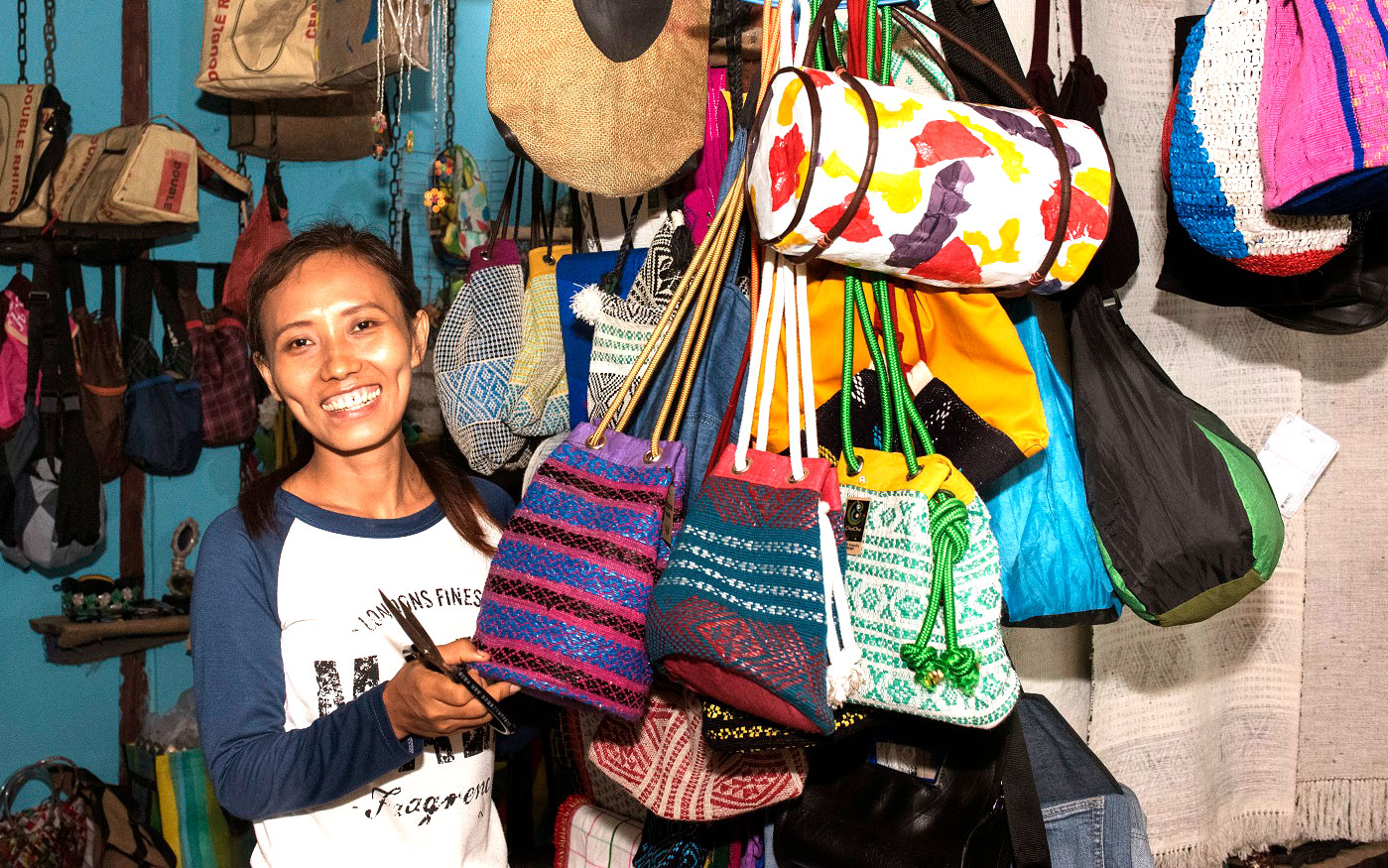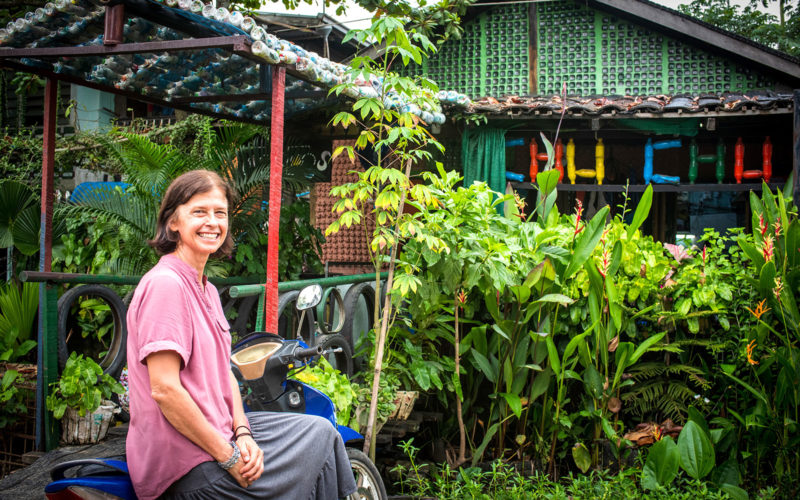Turning upcycling into much more
Story

Hla Hla Yee lives in the impoverished community of Dala and supports her family by heat fusing and sewing discarded plastic bags into colourful bins, bags, and packs. “It takes me about three hours to make one shopping bag,” she says. “But I like to do it because it helps me make money so my family can eat well.”
Hla Hla Yee, 51 a long-time seamstress, works with the upcycling social enterprise called ChuChu, the Burmese word for “plastic bag”. ChuChu began in 2014 as a three-year funded pilot project, and then successfully carried on as an independent business, training women and their families on how to transform discarded materials such as plastic bags, umbrellas and bicycle tubes, into earth-friendly purses, belts, bags and many other household goods. The goods are sold at the ChuChu workshop, and in retail shops in Myanmar.
“In the past, our community has not taken responsibility for the garbage all around them,” says Sen Sen, one of the founding members and lead designer at ChuChu. “But since ChuChu started up, people notice it more.” Sen Sen says they have opened the community’s eyes to the potential of creating beautiful objects through upcycling and helped them recognize and take responsibility for the tons of trash dumped in Yangon region every day.

Cuso International Volunteer, Hanna Karin, Myanmar
“People have become much better at noticing trash and working to clean it up. But it is more than that,” says SenSen. “ChuChu is very much about empowering women. Women are the leaders, and they run the family groups that make ChuChu products.” ChuChu producers live in towns and villages near Yangon, and in the northern regions of Chin and Rakhine states. These areas are severely impacted by poverty, conflict, and environmental crisis. Many survive on less than $4 a day. This situation has worsened with the COVID-19 pandemic.
The income provided to the ChuChu producers supports their families and has a ripple effect throughout entire communities. The Bogelay fishing region is one such area. It is the home of women who supply ChuChu with monsoon messenger bags, made from discarded umbrellas. In 2008, Cyclone Nargis devastated this fishing region, and it still has not recovered. Villagers rely on fishing for their income, but the good season only lasts for about three months. Now, thanks to ChuChu, people are making extra income from collecting and cleaning the umbrella fabric, and from sorting and sewing them into bags. The bags must be delivered to ChuChu, and so along the way, the motorcycle taxi, longboat driver, bus company, and trishaw driver will all be paid too.
ChuChu has also had effects far beyond Myanmar. Cuso International volunteer Hanna Karin was a design and marketing advisor for ChuChu from 2018-2020 and has brought ChuChu’s spirit of upcycling back to Canada.
“What I learn in the field teaches me things I can bring home to teach people here,” she says. “Being a volunteer for Cuso International has opened my eyes to a whole new way of doing business in Canada.” Cuso International maintains a presence in Southeast Asia and is committed to continue its work in the region. As we completed our programs in early 2020, we were in the process of exploring new opportunities when the pandemic hit the region. It has been particularly devastating for the communities where we work, but as our Southeast Asia Representative Tim Cook says, “There is great willingness to continue to collaborate with a longstanding, well known NGO like Cuso International.”
Photos:
Hero: ChuChu trainer, Suan Huai, Dala, Myanmar
Attributes: Photos by Brian Atkinson